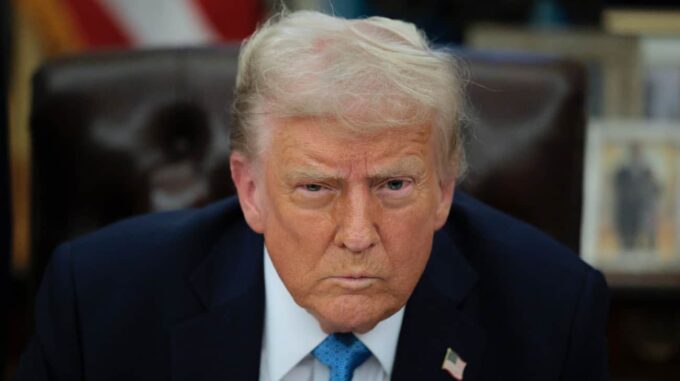Trump Administration to Restrict Sharing of Secret Information with Congress Over Leaked Iranian Strikes

In response to the recent leak of internal intelligence about operations in Iran, the administration of former President Donald Trump is planning to significantly restrict sharing of classified information with the US Congress. The decision comes amid publications and statements that have cast doubt on the legitimacy and effectiveness of Saturday's strikes on Iranian nuclear facilities. Axios, citing four senior administration officials, reported that a detailed assessment of combat casualties prepared by the Defense Intelligence Agency (DIA) was posted on the internal CAPNET classified information sharing system, which is designed to facilitate communication between the government and lawmakers. Late on Monday night, this assessment became available for exchange within a closed system, while the next day, part of its summary appeared in the news sections of CNN and The New York Times. The publications indicated that the consequences of the American strikes, which were aimed at Iranian nuclear facilities, turned out to be much less significant than Donald Trump claimed. Instead of completely destroying the targets, according to the leak, the results amounted to delaying the Iranian nuclear program for several months. This caused a sharp reaction in the White House: interlocutors report that the FBI has already begun an investigation into the situation regarding the leak of this classified information. The US administration does not hide its intentions to limit access to the CAPNET system and strengthen internal data protection procedures. A senior White House official has a firm word: “We are declaring war on information leaks.” According to them, the intelligence community is currently figuring out how to improve security processes and prevent a repeat of the leak of sensitive data, in particular from parts of the intelligence community that have a low level of trust in the context of leaks to the media. Administration officials emphasize: “As soon as we place information on CAPNET, it instantly becomes available and leaks. This is unacceptable. There is no reason for such situations to happen again.” At the same time, an internal investigation into the situation is underway within the government, which is designed to find out who is behind the leak and prevent similar cases in the future. Against the background of this crisis in relations with the intelligence community, the political aspect is also important. US Secretary of Defense Pete Hegseth announced on Wednesday, June 25, that the Pentagon has already launched a criminal investigation into possible leaks of a classified report by the Military Intelligence Agency. However, US President Marco Rubio denied any accusations in this regard, assuring that after the American strike on Iran, the country is far from creating nuclear weapons and the situation is under control. The development of this topic caused widespread media coverage. Donald Trump, known for his harsh statements, in particular criticized journalists for publishing information about the strikes and releasing internal data. Special Envoy for the Middle East Steve Witkoff called the leak an “act of treason”, and the former head of the White House compared the American strikes on Iranian facilities to the devastating bombings of Hiroshima and Nagasaki during World War II. Overall, the events surrounding the leak and internal assessments of the strikes on Iran opened a new page in the issues of security and transparency in making important military decisions, and also demonstrated the challenges that arise during periods of increased tension between the administration and US intelligence.

